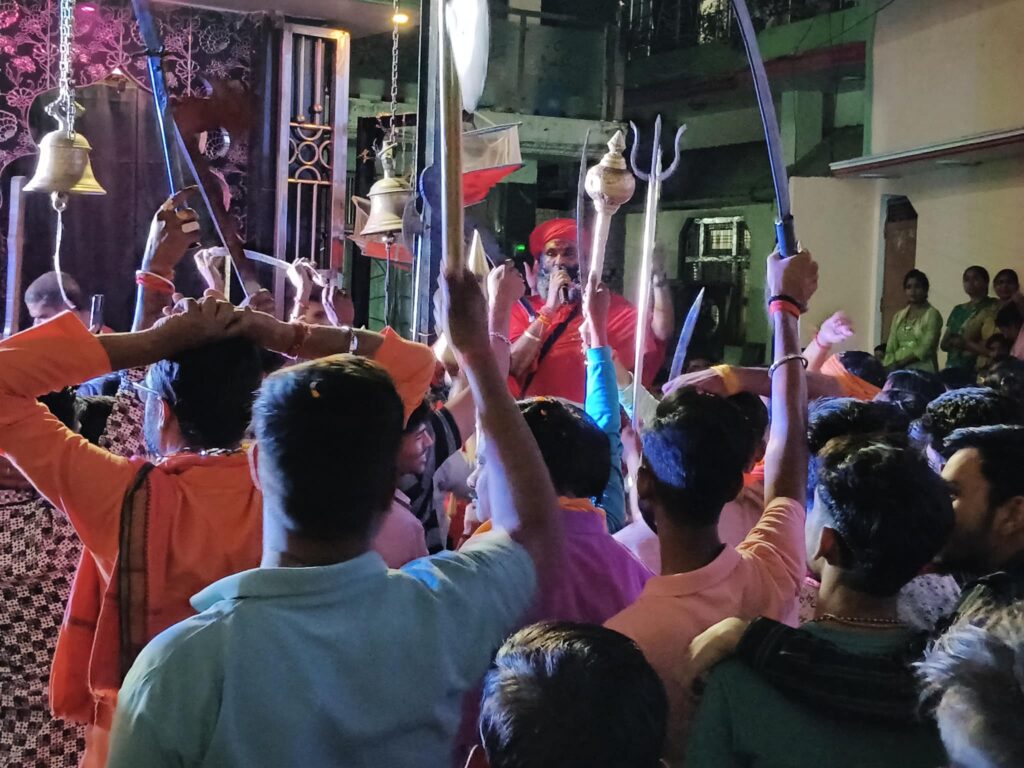
In the immediate aftermath of the deadly terror attack in Pahalgam, Jammu and Kashmir—which killed 26 people—Hindu far-right groups have launched a coordinated nationwide campaign of hate and intimidation against Muslims. These groups are exploiting the tragedy to inflame communal tensions and mobilize calls for violence, social exclusion, and economic boycotts.
Between April 22 and May 2, India Hate Lab (IHL) has documented 64 in-person hate speech events across 9 states and Union Territory of Jammu and Kashmir. Among states, Maharashtra recorded 17 hate speech events, Uttar Pradesh (13), Uttarakhand (6), Haryana (6), Rajasthan (5), Madhya Pradesh (5), Himachal Pradesh (5), Bihar (4) and Chhattisgarh (2). Most of these rallies were organized by Hindu nationalist groups such as the Vishwa Hindu Parishad (VHP), Bajrang Dal, Antarrashtriya Hindu Parishad (AHP), Rashtriya Bajrang Dal (RBD), Hindu Janajagruti Samiti, Sakal Hindu Samaj, Hindu Rashtra Sena and Hindu Raksha Dal.
Speakers at these events routinely used dehumanizing language, referring to Muslims as “green snakes,” “piglets,” “keede” (insects), and “mad dogs.” In many instances, they called for violence and threatened to expel Muslims from localities.
At an event in Kondagaon, Chhattisgarh, on April 22, far-right influencer Pushpendra Kulshrestha delivered an incendiary speech, declaring, “Don’t talk to the mad jihadis in your city; they can’t be spoken to, they have to be shot in the head.”
On April 23, at an event in Samath Nagar, Jhansi, Uttar Pradesh, far-right monk Madhuram Sharan Shiva incited violence against Muslims, stating, “You have to finish these adharmis.” He urged Hindus to prepare for war, called for an economic boycott, and told attendees, “You all need to have weapons.”
On April 24, at a rally organized by AHP and RBD in Ambala, Haryana, a far-right monk called for a complete boycott of Muslim vendors and businesses, urging attendees to ask vendors their religion before making purchases. The monk used derogatory slurs such as “katua” and “kathmulla” to refer to Muslims and threatened that if the government failed to act, Hindus would pick up weapons and “send them to Pakistan.”
At a candlelight rally held in Madhepura, Bihar on April 25, a speaker similarly called for the economic boycott of Muslim vendors, urging Hindus to inquire about the religion of shopkeepers before buying anything.
In Loni, Ghaziabad, Uttar Pradesh, on April 26, Bharatiya Janata Party (BJP) MLA Nandkishor Gurjar administered an oath to protest attendees, urging them to identify and expel all those who “support Pakistan,” referring to them as “topiwallas,” “jihadis,” and “Rohingya Bangladeshis.”
In Sarahan, Shimla, Himachal Pradesh, on April 28, a speaker at a rally demanded the eviction of Muslim tenants, warning property owners that they would be the first to face expulsion if they failed to comply. Protesters also chanted slogans such as “Mullah-Maulavis won’t be allowed.”
On April 29, at a rally organized by Hindu Rashtra Sena and Sakal Hindu Samaj in Kamshet, Pune, Maharashtra, multiple far-right leaders delivered incendiary anti-Muslim speeches. One speaker abused local Muslims by calling them “Pakistanis” and claimed that “Bangladeshis and Pakistanis are earning from this city.” He demanded strict Aadhaar verification and pushed the conspiracy theory that Muslims could “attack Hindus anytime,” while calling for an economic boycott. Another speaker escalated the rhetoric, saying, “I request the government to give the police a month’s vacation—then watch how we disappear these Pakistani landas not just from Maharashtra but from India.”
This wave of hate speech has been accompanied by a troubling spike in hate crimes and acts of violence, targeting Kashmiris in particular and Muslims more broadly. In Haryana, Muslim street vendors were assaulted and their carts set on fire. In Uttarakhand, Kashmiri shawl sellers were attacked, and a BJP leader openly threatened Muslim food vendors. In Uttar Pradesh, a Muslim man was brutally attacked with an axe while the assailant reportedly shouted, “Twenty-six were killed; twenty-six of yours will die too.”
Researchers at IHL have noted that a majority of these in-person hate speech events were either live-streamed or had videos uploaded to Facebook, Instagram, YouTube, or X, further amplifying the harm and reaching millions of viewers. The rapid spread of this content demonstrates the dangerous connection between online hate ecosystems and offline violence.
India Hate Lab continues to monitor, document, and analyze these developments and calls on Indian authorities and social media platforms to act swiftly against hate speech and incitement to violence.
This report is part of India Hate Lab’s Early Warning, Early Response (EWER) initiative. India Hate Lab is a project of the Center for the Study of Organized Hate (CSOH).
For media inquiries, please contact: [email protected] | www.indiahatelab.com